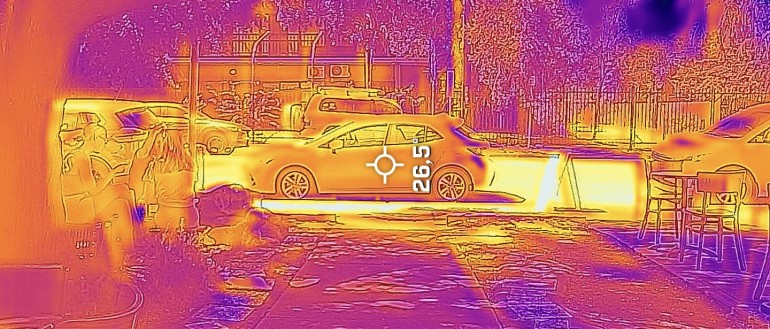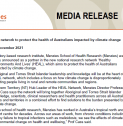Funders:
Collaborators:
- Prof John Wakerman, Menzies School of Health Research
- Dr Supriya Mathew, Menzies School of Health Research
- Dr Lisa Stefanoff, Menzies School of Health Research
- Michael Klerck, Research Hub, Tangentyere Council Aboriginal Corporation
- Vanessa Davis, Research Hub, Tangentyere Council Aboriginal Corporation
- A Prof Melissa Hart, ARC Centre of Excellence for Climate Extremes (CLEX), UNSW Sydney
- Dr Negin Nazarian, UNSW Sydney, Built Environment, ARC Centre of Excellence for Climate Extremes, City Futures Research Centre and Climate-Resilient Cities (CRC) research lab
- Dr Angela Maharaj, Climate Change Research Centre, UNSW Sydney
- Dr Grant Williamson, University of Tasmania
- Dr Matt Brearley, Thermal Hyperformance
- AirRater
- Alice Springs Town Council
- Arid Lands Environment Centre
- Incite Arts
- Group Training NT Group
- Northern Territory Department of Health
- CE4HEAL (Clean Energy for Healthy Environments and Lives)
-
Get involved and be a Citizen Climate Scientist
Menzies School of Health Research is seeking volunteers to be 'Citizen Climate Scientists' as part of the 'Air in Alice' project. Senior Research Officer on the Air in Alice project, Dr Lisa Stefanoff, spoke with CAAMA Radio about the project.
-

AirRater in the NT: 2022 Updates
Thanks to the Air in Alice citizen science project, AirRater will soon be able to offer more environmental data for Alice Springs.
-
New network to protect the health of Australians impacted by climate change
Menzies was today announced as a partner in the new national research network ‘Healthy Environments And Lives’ (HEAL), which aims to protect the health of Australians impacted by climate change.
-
$10 million national network to build resilience to the human health impacts of environmental change
The National Health and Medical Research Council (NHMRC) welcomes today’s announcement by Minister for Health Greg Hunt of the $10 million Special Initiative in Human Health and Environmental Change.
-
Citizen Scientists to help in important national research projects
$499,323 for the Menzies School of Health Research to run its “Air in Alice” program.
Summary:
The project aims to crowdsource air quality and temperature data to facilitate a sustainable environmental health response in Alice Springs, a remote central Australian town with a resident population of 24,000. More than 25 percent of the population are Aboriginal or Torres Strait Islander.
Alice Springs experiences approximately 50 days per year with temperatures greater than 40°C. Climatic changes will worsen these conditions, placing greater strain on the outdoor life of residents and visitors, including about 300,000 tourists per year.
Air quality is compromised by desert dust, wood fire and bush fires. Alice Springs has one weather station which is 10 km from the town centre and there are no air quality monitoring stations.
This project will actively involve local residents in monitoring ambient temperature and air quality and in feeding back strategies for an environmental health response system. Local residents will collect data using wearable sensors.
The results of this project have the potential to be transferred to the residents of arid, remote Australia, a population larger than that of the ACT or of Tasmania, spread over 80 percent of the continent.
Chief Investigator:
Project Coordinator:
Project dates:
- 30/06/21-31/03/24
Information for study participants:
Alice Springs residents will be invited to participate in this project as citizen scientists. Volunteering residents will contribute to the environmental data collection by wearing key ring sized sensors that will monitor temperature and air quality. Residents will also have the opportunity to provide feedback on any environmental-health related impacts and suggest strategies to reduce current and future impacts in Alice Springs.





